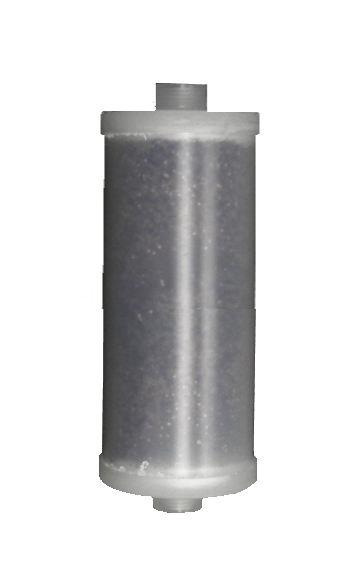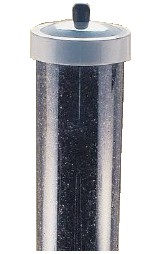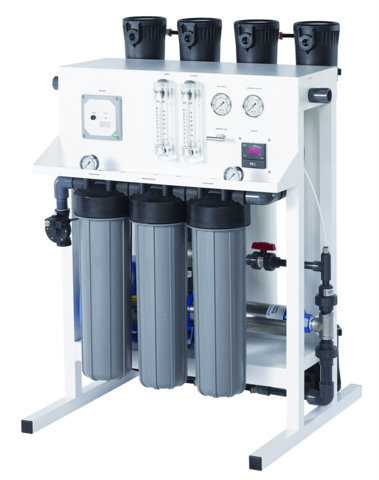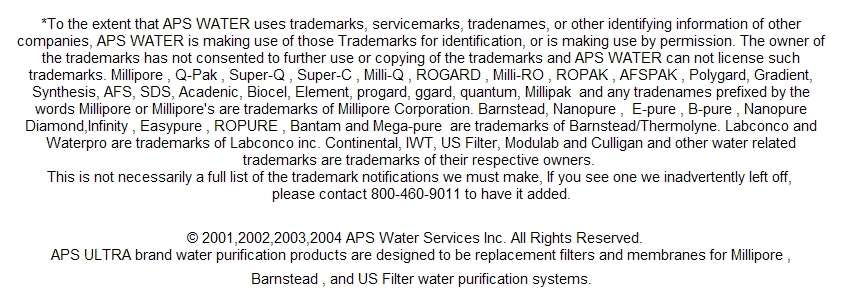 |
Need a New Laboratory Water System?
We have many to choose from. We can save you thousands on
Complete Systems and replacement filters for most brands. |
What are the health effects of contaminants in drinking water?
EPA has set standards for more than 80 contaminants that may occur in drinking water and pose a risk to human health.
EPA sets these standards to protect the health of everybody, including vulnerable groups like children. The contaminants fall into two groups according to the health effects that they cause. Your local water supplier will alert you through the local media, direct mail, or other means if there is a potential acute or chronic health effect from compounds in the drinking water. You may want to contact them for additional information specific to your area.
Acute effects occur within hours or days of the time that a person consumes a contaminant. People can suffer acute health effects from almost any contaminant if they are exposed to extraordinarily high levels (as in the case of a spill). In drinking water, microbes, such as bacteria and viruses, are the contaminants with the greatest chance of reaching levels high enough to cause acute health effects.
Most people’s bodies can fight off these microbial contaminants the way they fight off germs, and these acute contaminants typically don’t have permanent effects. Nonetheless, when high enough levels occur, they can make people ill, and can be dangerous or deadly for a person whose immune system is already weak due to HIV/AIDS, chemotherapy, steroid use, or another reason.
Chronic effects occur after people consume a contaminant at levels over EPA’s safety standards for many years. The drinking water contaminants that can have chronic effects are chemicals (such as disinfection by-products, solvents, and pesticides), radionuclides (such as radium), and minerals (such as arsenic). Examples of these chronic effects include cancer, liver or kidney problems, or reproductive difficulties.
Who is responsible for drinking water quality? The Safe Drinking Water Act gives the environmental Protection Agency (EPA) the responsibility for setting national drinking water standards that protect the health of the 250 million people who get their water from public water systems. Other people get their water from private wells which are not subject to federal regulations. Since 1974, EPA has set national standards for over 80 contaminants that may occur in drinking water. While EPA and state governments set and enforce standards, local governments and private water suppliers have direct responsibility for the quality of the water that flows to your tap. Water systems test and treat their water, maintain the distribution systems that deliver water to consumers, and report on their water quality to the state. States and EPA provide technical assistance to water suppliers and can take legal action against systems that fail to provide water that meets state and EPA standards.
|

Images are representative of the products. Images may or may not be of the actual product. If it is important e-mail us for an actual image if available.
* Flat Rate UPS shipping when able to ship via UPS and is in the USA excluding Hawaii and Alaska.
Larger Items may not be able to ship via UPS, in that case freight charges will be quoted seperately.
International shipping will be quoted after the order is placed. You will have the opportunity to cancel before we finalize your order.
Terms and conditions
Credit Application
Privacy
Policy
Google Apps
List All Products
|














